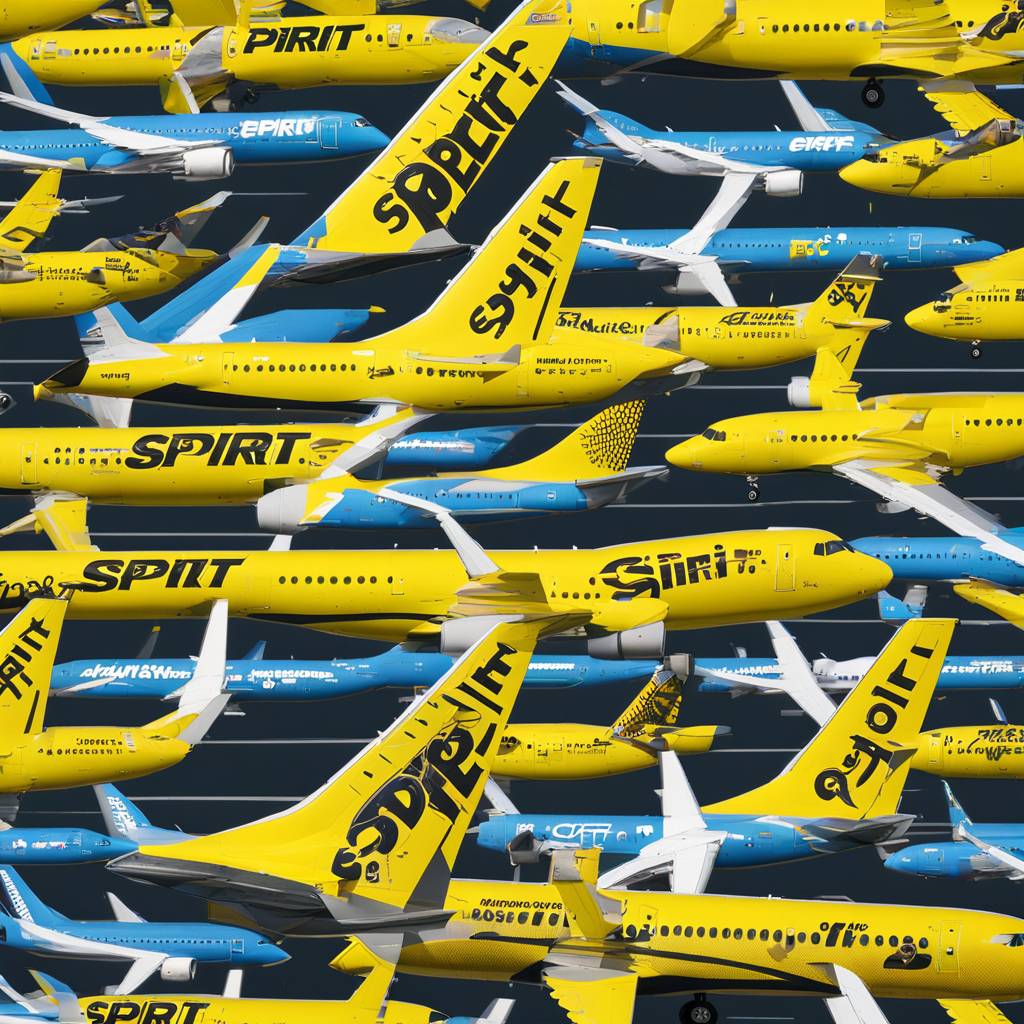Spirit Airlines has reached a deal with Airbus to delay all aircraft deliveries scheduled from the second quarter of 2025 through 2026, intending to furlough around 260 pilots to save cash. The low-cost airline will defer the scheduled deliveries to 2030-2031 due to quality issues with engines from Pratt & Whitney. Shares of Spirit rose about 5% in early trading following the news. The company has been forced to ground some of its A320neo aircraft due to engine issues, exacerbating its existing cash crunch.
The agreement with Airbus is expected to improve Spirit’s liquidity by approximately $340 million over the next two years, with no changes to orders scheduled for delivery during 2027-2029. Citi Research analyst Stephen Trent noted that while the aircraft deferrals and pilot furloughs may help reduce costs, they could also potentially limit revenue generation opportunities for the carrier. Spirit, which has been facing financial losses despite strong travel demand, currently operates an all-Airbus fleet with 205 jets as of December 2023.
Spirit now anticipates ending 2025 with a total of 219 jets in its fleet, without adding any A320neo aircraft as previously planned. The decision to furlough pilots has raised concerns among the company’s pilot group, with chair Ryan Muller acknowledging the troubling impact on the workforce. The Master Executive Council at the Air Line Pilots Association is exploring voluntary measures to mitigate the furloughs or reduce their number. The company’s struggle to navigate financial challenges while maintaining its operations highlights the impact of industry disruptions on airlines like Spirit.
The need for cost-saving measures has led Spirit Airlines to delay aircraft deliveries and furlough pilots, reflecting the broader challenges facing the airline industry. Despite facing quality issues with engines from Pratt & Whitney, the company aims to improve its liquidity through the agreement with Airbus. The decision to defer deliveries to 2030-2031 and end 2025 with a smaller fleet size signals a shift in strategy for Spirit as it navigates financial pressures. The potential reduction in revenue generation opportunities due to the changes may pose additional challenges for the airline moving forward.
The furloughs and deferrals come at a time when Spirit Airlines is working to address its cash crunch and strengthen its financial position amid ongoing operational challenges. The company’s reliance on an all-Airbus fleet and the impact of engine issues on its operations highlight the vulnerability of airlines to external factors. The efforts to explore voluntary measures to address the furloughs underscore the collaborative approach taken by the company and its pilot group to navigate the current crisis. As Spirit adjusts its fleet outlook and financial plans, the industry as a whole continues to grapple with uncertainty and disruptions.
The delays in aircraft deliveries and the pilot furloughs demonstrate Spirit Airlines’ proactive approach to managing its financial situation and addressing operational challenges. The company’s decision to prioritize cost-saving measures while adapting its fleet strategy reflects a strategic response to the current economic environment. As Spirit works to enhance its liquidity and stabilize its operations, the industry dynamics and external factors continue to shape its path forward. Despite the near-term impact of the furloughs, the company’s efforts to strengthen its financial position and navigate industry disruptions highlight its resilience and adaptability in a challenging environment.













